Spin dictators
Livestream
Related press
«Die Schweizer Ölhändler werden entscheidend sein» Interview mit Sergei Guriev Swissinfo vom 29.9.2022 lesen
Putins Gegner kritisieren die Schweiz Artikel Swissinfo vom 29.9.2022 lesen
«Ich bin für Putin kein Verräter, nur ein Feind» Interview mit Sergei Guriev Tagesanzeiger vom 28.9.2022 lesen
Warum Diktatoren heute Anzüge statt Uniformen tragen Schweizer Monat vom 27.9.2022 lesen
Russland wirtschaftlich unter Druck Interview mit Sergei Guriev 10vor10 vom 20.9.2022 schauen
«Spin-Diktatoren lieben die Probleme des Westens» Interview mit Sergei Guriev Tagesanzeiger vom 12.6.2022 lesen
For modern autocrats, lying is more useful than killing book review The Economist of 2.4.2022 read
Photo gallery
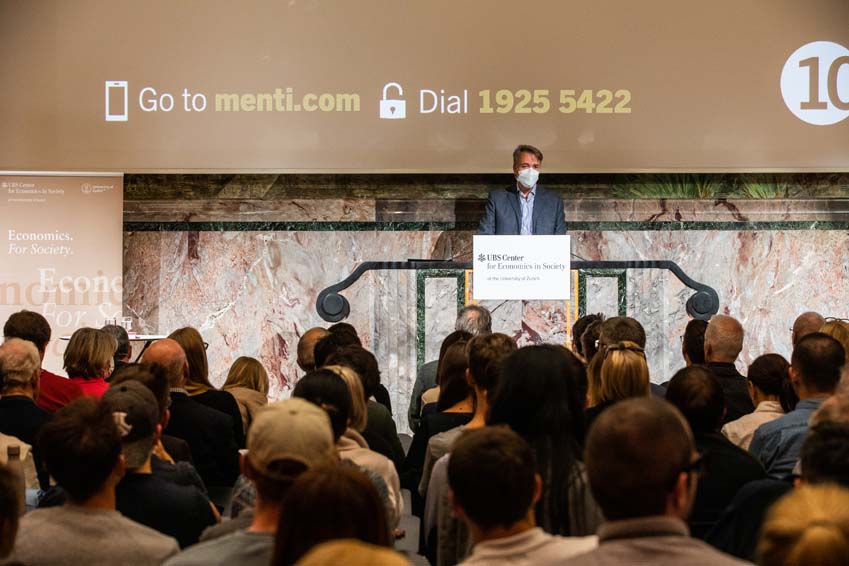
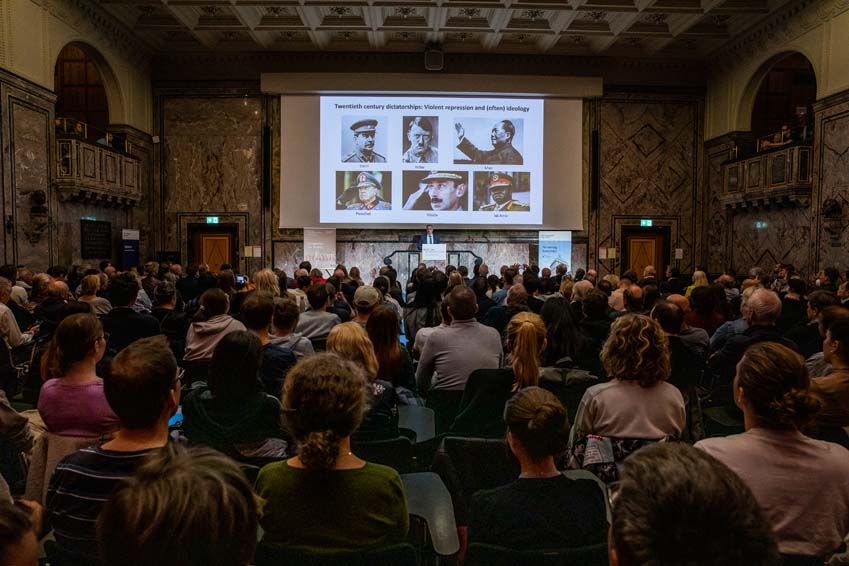
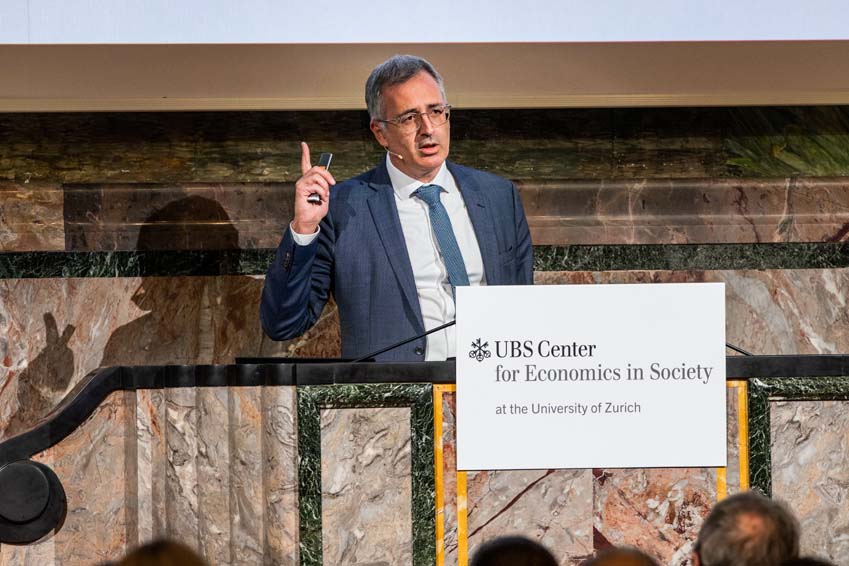
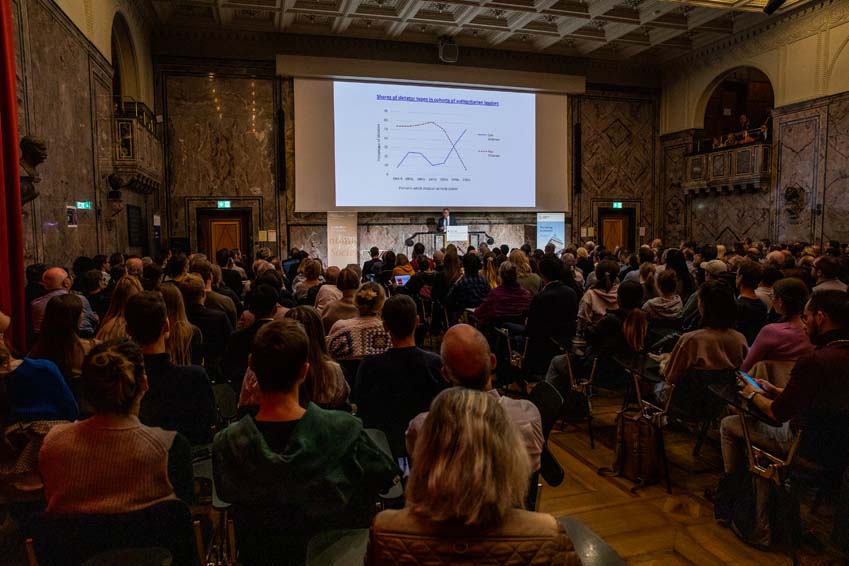
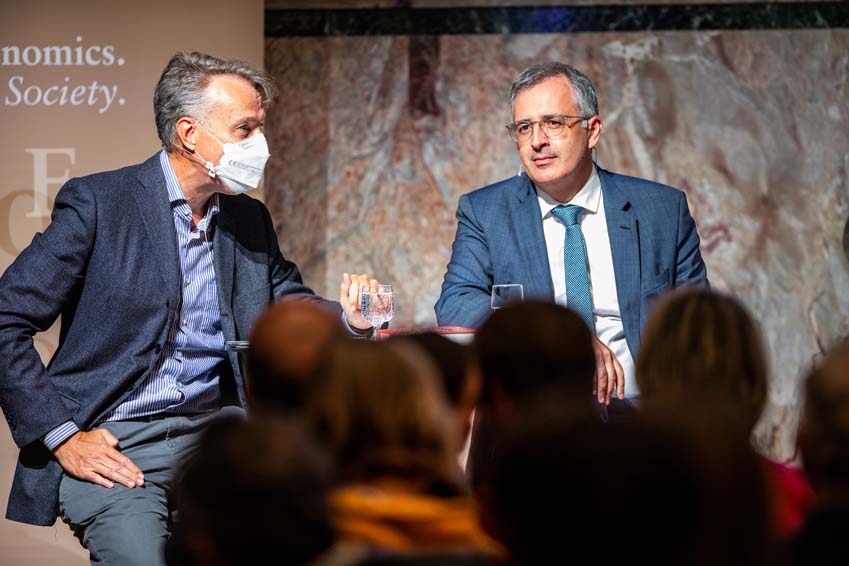
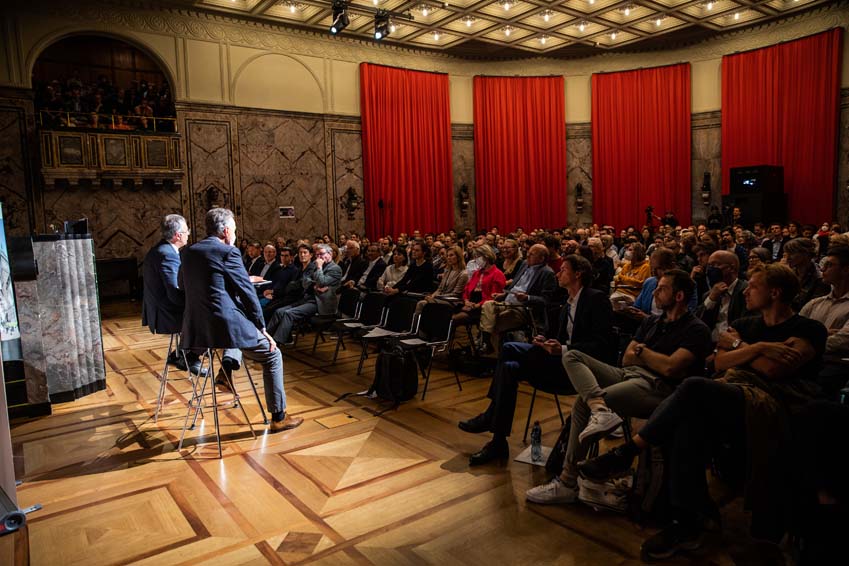
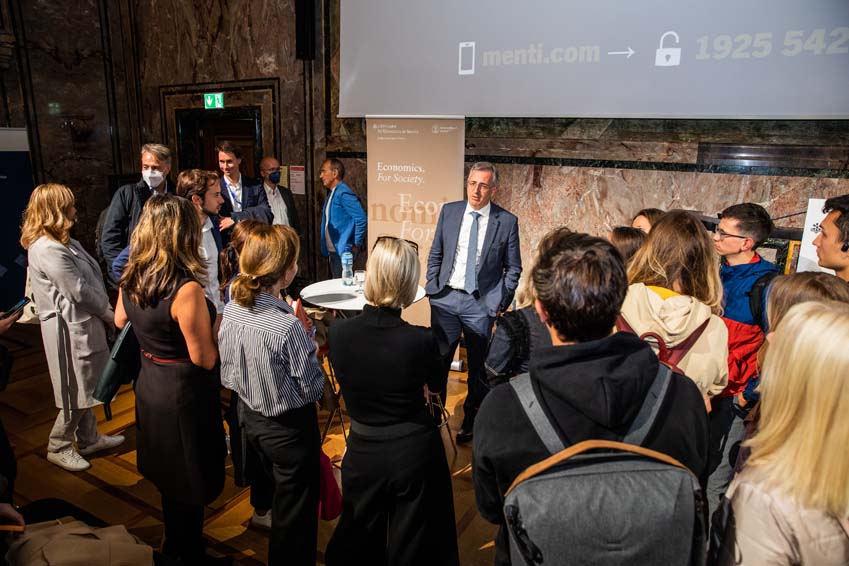
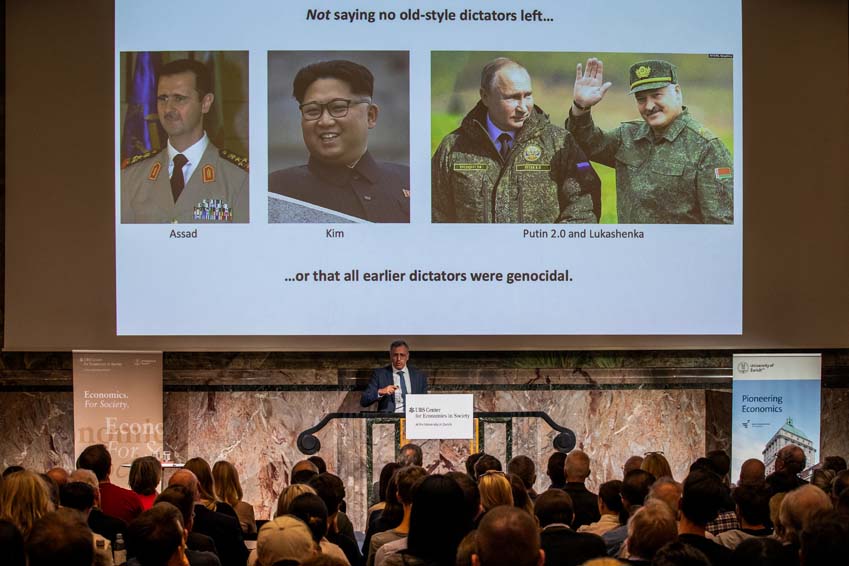
Intro
Writer and economics professor Sergei Guriev, an expert on Russia, shared his thoughts on a new breed of dictators. Guriev was rector of the prestigious New Economic School in Moscow from 2004 to 2013 before he fled to Paris after politically motivated interrogations. He addresses pressing questions about the ongoing war in Ukraine – a war that has not only brought material devastation and human tragedy to Ukrainians but has also come at huge economic cost. Why did Putin start this war? Doesn’t the economy matter to him? What is the role of lies and fear in Putin’s strategy?
This was a free public event at the University of Zurich. A livestream was provided on our website in association with the Centre for Economic Policy Research (CEPR).
Writer and economics professor Sergei Guriev, an expert on Russia, shared his thoughts on a new breed of dictators. Guriev was rector of the prestigious New Economic School in Moscow from 2004 to 2013 before he fled to Paris after politically motivated interrogations. He addresses pressing questions about the ongoing war in Ukraine – a war that has not only brought material devastation and human tragedy to Ukrainians but has also come at huge economic cost. Why did Putin start this war? Doesn’t the economy matter to him? What is the role of lies and fear in Putin’s strategy?
This was a free public event at the University of Zurich. A livestream was provided on our website in association with the Centre for Economic Policy Research (CEPR).
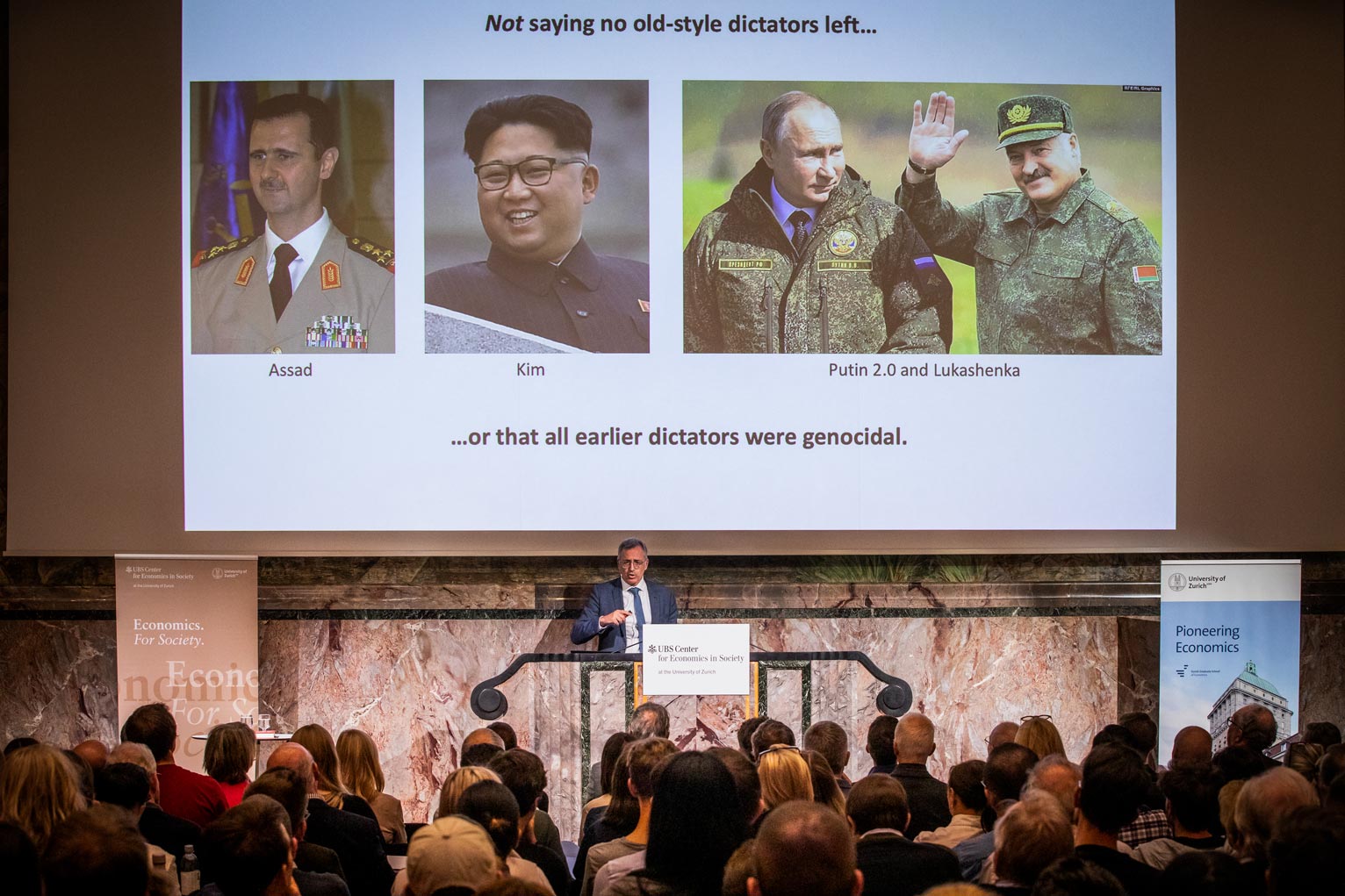
Russia and the changing face of tyranny
Hitler, Stalin, and Mao ruled through violence, fear, and ideology. But in recent decades a new breed of media-savvy strongmen has been redesigning authoritarian rule for a more sophisticated, globally connected world. In place of overt, mass repression, rulers such as Recep Tayyip Erdogan and Viktor Orbán control their citizens by distorting information and simulating democratic procedures. Like spin doctors in democracies, they spin the news to engineer support. Uncovering this new brand of authoritarianism, Sergei Guriev and co-author Daniel Treisman explain the rise of such “spin dictators” in their latest book, describing how they emerge and operate, the new threats they pose, and how democracies should respond.
Where does Putin rank in this taxonomy? For Guriev, one thing is clear: Putin has miscalculated the war in Ukraine. His narrative has become increasingly hard to spin, and that is why he has changed his strategy: “Putin’s regime has completed its reversion from a 21st century spin dictatorship to a 20th century dictatorship based on fear.”
Hitler, Stalin, and Mao ruled through violence, fear, and ideology. But in recent decades a new breed of media-savvy strongmen has been redesigning authoritarian rule for a more sophisticated, globally connected world. In place of overt, mass repression, rulers such as Recep Tayyip Erdogan and Viktor Orbán control their citizens by distorting information and simulating democratic procedures. Like spin doctors in democracies, they spin the news to engineer support. Uncovering this new brand of authoritarianism, Sergei Guriev and co-author Daniel Treisman explain the rise of such “spin dictators” in their latest book, describing how they emerge and operate, the new threats they pose, and how democracies should respond.
Where does Putin rank in this taxonomy? For Guriev, one thing is clear: Putin has miscalculated the war in Ukraine. His narrative has become increasingly hard to spin, and that is why he has changed his strategy: “Putin’s regime has completed its reversion from a 21st century spin dictatorship to a 20th century dictatorship based on fear.”
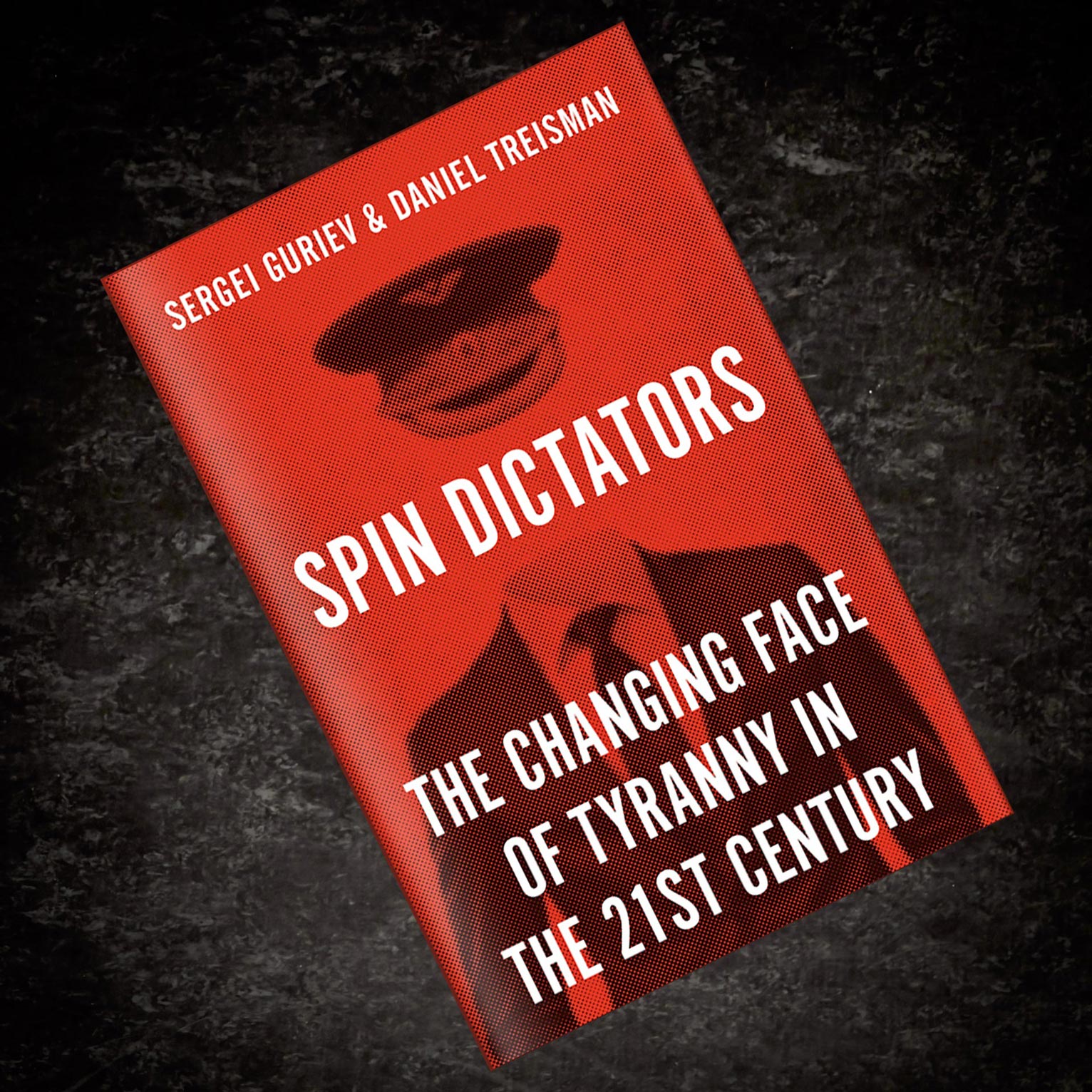
Program
| 18.00 |
Introduction Prof. Joachim Voth (Scientific Director, UBS Center) |
|
Spin dictators Prof. Sergei Guriev (Sciences Po) |
|
| 19.00 |
End of event |
| 18.00 |
Introduction Prof. Joachim Voth (Scientific Director, UBS Center) |
|
Spin dictators Prof. Sergei Guriev (Sciences Po) |
|
| 19.00 |
End of event |
Speakers
Sergei Guriev is Professor of Economics and (since 2022) Provost at Sciences Po, Paris, which he joined in 2013 after serving as Rector of the New Economic School in Moscow from 2004 to 2014. He is also a former Director of Graduate Programs in Economics at Sciences Po. Guriev was on leave from Sciences Po serving as the Chief Economist and the Member of the Executive Committee of the European Bank for Reconstruction and Development (EBRD) from 2016 to 2019. Professor Guriev’s research interests include political economics, labor mobility, corporate governance, and contract theory. He has published extensively in leading international journals. He has been a board member of several Russian banks and companies as well as a member of various international scientific councils and committees. Since 2011, he has been a member of the World Economic Forum’s multiple Global Agenda Councils and Global Future Councils. He is also a Research Fellow and the Leader of the Research and Policy Network on Populism at the Centre for Economic Policy Research, London.
Joachim Voth received his PhD from Oxford in 1996. He works on financial crises, long-run growth, as well as on the origins of political extremism. He has examined public debt dynamics and bank lending to the first serial defaulter in history, analysed risk-taking behaviour by lenders as a result of personal shocks, and the investor performance during speculative bubbles. Joachim has also examined the deep historical roots of anti-Semitism, showing that the same cities where pogroms occurred in the Middle Age also persecuted Jews more in the 1930s; he has analyzed the extent to which schooling can create radical racial stereotypes over the long run, and how dense social networks (“social capital”) facilitated the spread of the Nazi party. In his work on long-run growth, he has investigated the effects of fertility restriction, the role of warfare, and the importance of state capacity. Joachim has published more than 80 academic articles and 3 academic books, 5 trade books and more than 50 newspaper columns, op-eds and book reviews. His research has been highlighted in The Economist, the Financial Times, the Wall Street Journal, the Guardian, El Pais, Vanguardia, La Repubblica, the Frankfurter Allgemeine, NZZ, der Standard, der Spiegel, CNN, RTN, Swiss and German TV and radio.
Sergei Guriev is Professor of Economics and (since 2022) Provost at Sciences Po, Paris, which he joined in 2013 after serving as Rector of the New Economic School in Moscow from 2004 to 2014. He is also a former Director of Graduate Programs in Economics at Sciences Po. Guriev was on leave from Sciences Po serving as the Chief Economist and the Member of the Executive Committee of the European Bank for Reconstruction and Development (EBRD) from 2016 to 2019. Professor Guriev’s research interests include political economics, labor mobility, corporate governance, and contract theory. He has published extensively in leading international journals. He has been a board member of several Russian banks and companies as well as a member of various international scientific councils and committees. Since 2011, he has been a member of the World Economic Forum’s multiple Global Agenda Councils and Global Future Councils. He is also a Research Fellow and the Leader of the Research and Policy Network on Populism at the Centre for Economic Policy Research, London.
Joachim Voth received his PhD from Oxford in 1996. He works on financial crises, long-run growth, as well as on the origins of political extremism. He has examined public debt dynamics and bank lending to the first serial defaulter in history, analysed risk-taking behaviour by lenders as a result of personal shocks, and the investor performance during speculative bubbles. Joachim has also examined the deep historical roots of anti-Semitism, showing that the same cities where pogroms occurred in the Middle Age also persecuted Jews more in the 1930s; he has analyzed the extent to which schooling can create radical racial stereotypes over the long run, and how dense social networks (“social capital”) facilitated the spread of the Nazi party. In his work on long-run growth, he has investigated the effects of fertility restriction, the role of warfare, and the importance of state capacity. Joachim has published more than 80 academic articles and 3 academic books, 5 trade books and more than 50 newspaper columns, op-eds and book reviews. His research has been highlighted in The Economist, the Financial Times, the Wall Street Journal, the Guardian, El Pais, Vanguardia, La Repubblica, the Frankfurter Allgemeine, NZZ, der Standard, der Spiegel, CNN, RTN, Swiss and German TV and radio.